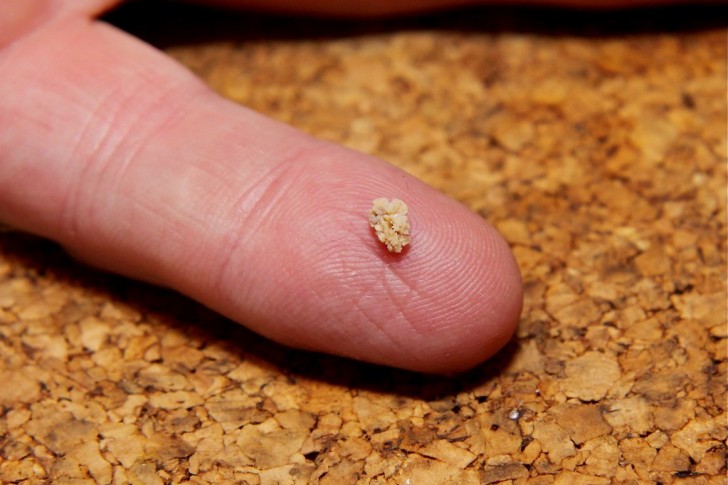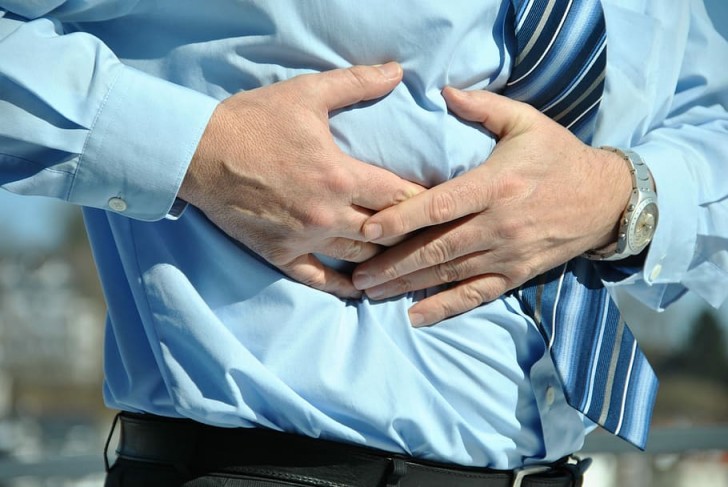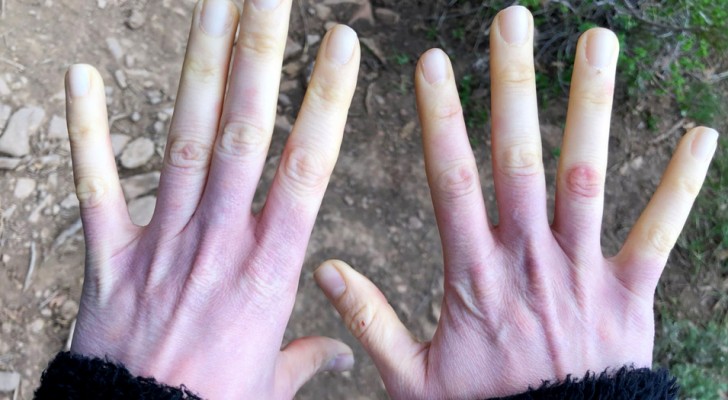8 signs that can indicate the presence of kidney stones

Kidney stones are accumulations of salt and minerals, often consisting of uric acid or calcium.
Some kidney stones are very small and are expelled without treatment, but in severe cases, they can be quite large and become extremely painful.
When you do not drink enough water, the urine produced becomes more concentrated and, if the mineral levels increase too much, a kidney stone can be formed.
This pathology is widespread and often we notice it only when it becomes very painful, but there are warning signs that can tell us that we should get a check-up.
via healthline.com

- 1. Pain in the side and belly. This is the most known and painful symptom, with an intensity comparable to that of childbirth. This pain usually starts when the stone moves into the narrow ureter, blocking the urine flow, and increasing the pressure on the kidney effected.
- 2. Pain or burning when urinating. This is also a widespread symptom, but which is sometimes confused with a simple urinary infection, although often the two go hand in hand.
- 3. The urgency to go to the bathroom. The presence of a kidney stone in the urinary tract can make the urine flow abnormal. You may find yourself having to suddenly run to the bathroom and maybe also more frequently in a very short space of time.
- 4. Blood in the urine. This is a classic symptom for people with kidney stones, although sometimes blood cells are not visible to the naked eye and are only detectable by a urinalysis.

- 5. Abnormal appearance. If during urination the liquid is very cloudy, a dark color or gives off an abnormal odor, it may indicate a stagnation of urine or an unusual concentration.
- 6. Small flows of urine. The presence of a kidney stone can cause interruption or reduction of the amount of urine.
- 7. Nausea and vomiting. These are very common symptoms, due to the connection between the kidneys and the gastrointestinal tract, but they are certainly the least recognizable symptoms.
- 8. Fever and chills. If the fever is high (over 100.4°F or 38°C) and persistent, it may indicate an ongoing infection with bacterial proliferation.
Often (if you are lucky) very small kidney stones are expelled through urination without you even realizing it.
Sometimes, however, this is not the case, and recognizing this disorder in time can be an opportunity to ask your primary health caregiver to run some tests.





